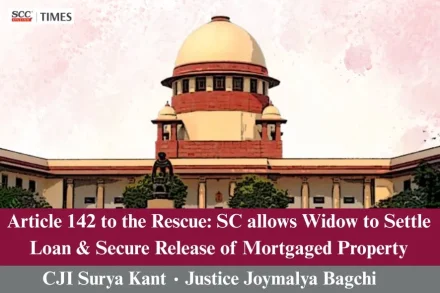
Article 142 to the Rescue: SC allows Widow to Settle Loan & Secure Release of Mortgaged Property
“Though the demand raised by the Bank is legally sustainable, we find that compliance thereof would lead to extreme hardship for the appellant.”

“Though the demand raised by the Bank is legally sustainable, we find that compliance thereof would lead to extreme hardship for the appellant.”
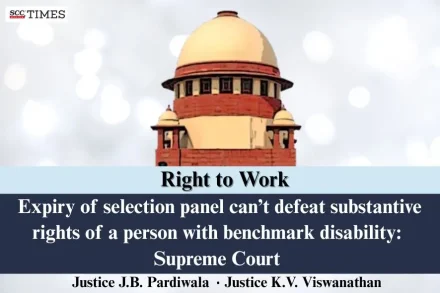
“True equality at the workplace can be achieved only with the right impetus given to disability rights as a facet of Corporate Social Responsibility.”
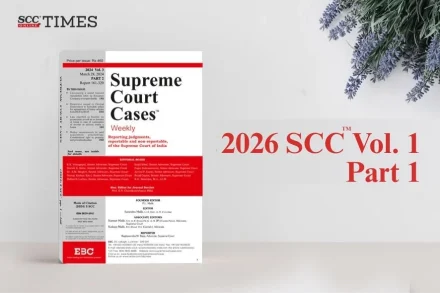
2026 SCC Vol. 1 Part 1: Explore the latest Supreme Court Cases on Constitution’s Articles 200 and 201.
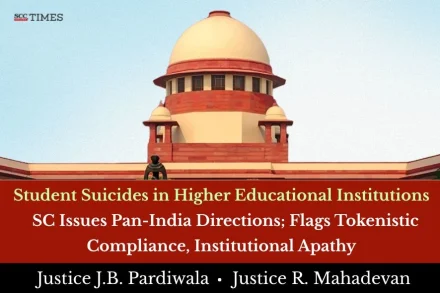
“Irrespective of upon whom the culpability may lie from a strict penal perspective, HEIs cannot shirk away from their fundamental duty to ensure that their institutions as a whole are safe, equitable, inclusive and conducive spaces of learning.”
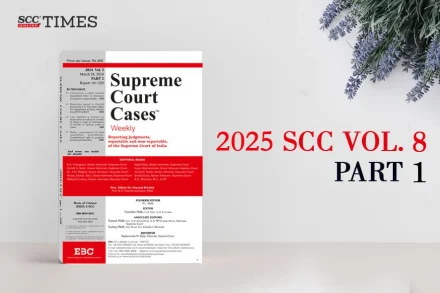
2025 SCC Vol. 8 Part 1: Explore the latest Supreme Court Cases on Constitution’s Articles 21, 142 and 200.

“In the interest of justice, equity, and the welfare of the child, we deem it appropriate to grant visitation rights to the wife so that she may gradually rebuild a bond with her daughter.”
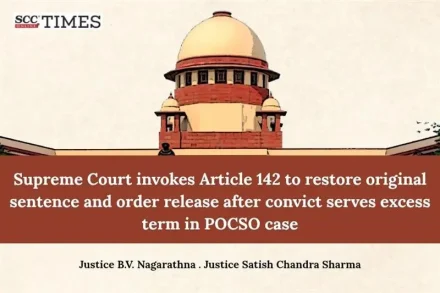
The original judgment of the Special Court convicted and imposed a sentence of rigorous imprisonment for seven years on the convict. However, the convict had already undergone eleven years of actual sentence.
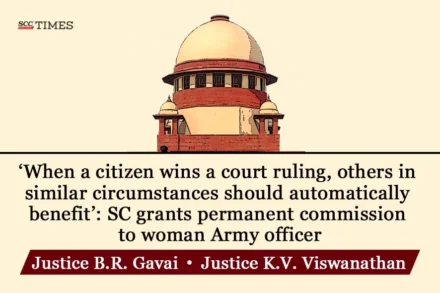
Supreme Court reiterated that where a citizen aggrieved by an action of the government department has approached the court and obtained a declaration of law in his/her favour, others similarly situated ought to be extended the benefit without the need for them to go to court.
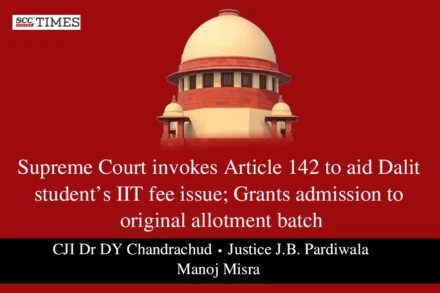
Supreme Court acknowledged that the petitioner’s admission had been delayed through no fault of his own. It requested the Director of IIT Dhanbad to utilize his good offices to facilitate the petitioner’s ability to complete the coursework for the time already elapse.
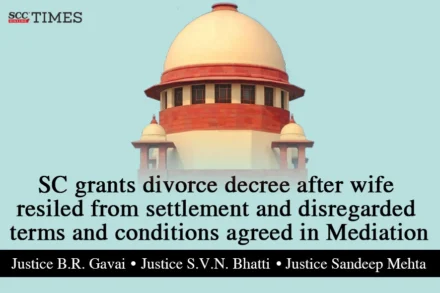
“The wife took advantage of the settlement executed before the Mediator and managed to get the matrimonial case instituted by the husband withdrawn and also accepted a sum of Rs. 50 lakhs from the husband as permanent alimony.”
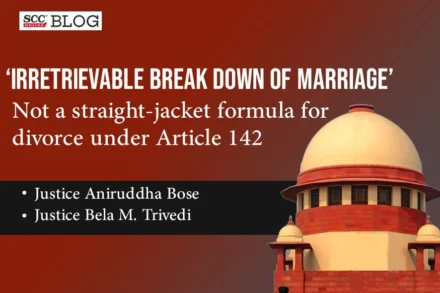
The Supreme Court considered an appeal seeking divorce for husband and wife aged 87 years and 82 years respectively, on the ground of irretrievable breakdown of marriage.

“Family Courts must restrict their considerations to the parameters of the provision of grant of divorce strictly in accordance with the Hindu Marriage Act, 1955 (‘Act’). Irretrievable breakdown of marriage is not a ground in the Act.”
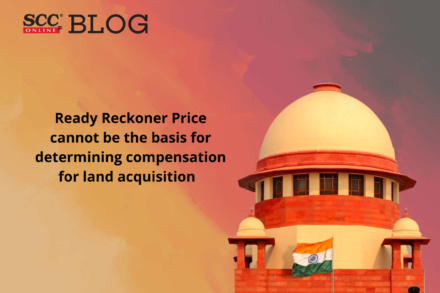
Supreme Court: While reversing the impugned decision of the Bombay High Court, M.R. Shah* and B.V. Nagarathna, JJ., held that the prices
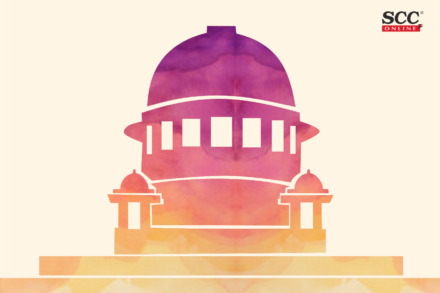
The Courts ought to be vigilant to ensure that the complainant-victim has entered into the compromise on the volition of his/her free will and not on account of any duress. If the Courts find even a hint of compulsion or force, no relief can be given to the accused party.
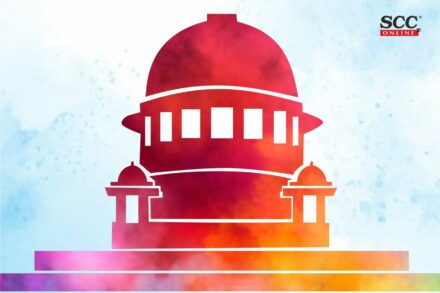
“We are of the opinion that the order dated 15.03.2020* has served its purpose and in view of the changing scenario relating to the pandemic, the extension of limitation should come to an end.”
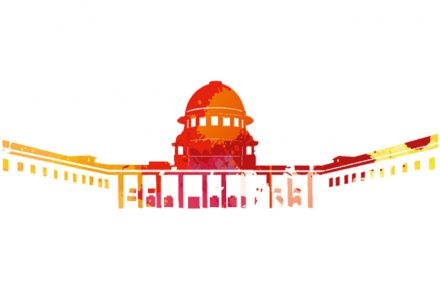
Supreme Court: The 3-judge bench of Ashok Bhushan, SK Kaul and MR Shah, JJ has held that it’s order dated 23.03.2020, wherein

The Supreme Court Registry has notified the list of 1239 matters that are likely to be heard by the Supreme Court through

Supreme Court: The 3-judge bench of SA Bobde, Deepak Gupta and Hrishikesh Roy, JJ has directed extended the limitation prescribed under the

“Having regard to the provisions of Article 21 of the Constitution of India, it has become imperative to ensure that the spread

Supreme Court: The 3-judge bench of SA Bobde, CJ and L. Nageswara Rao and Surya Kant, JJ invoked its power under Article